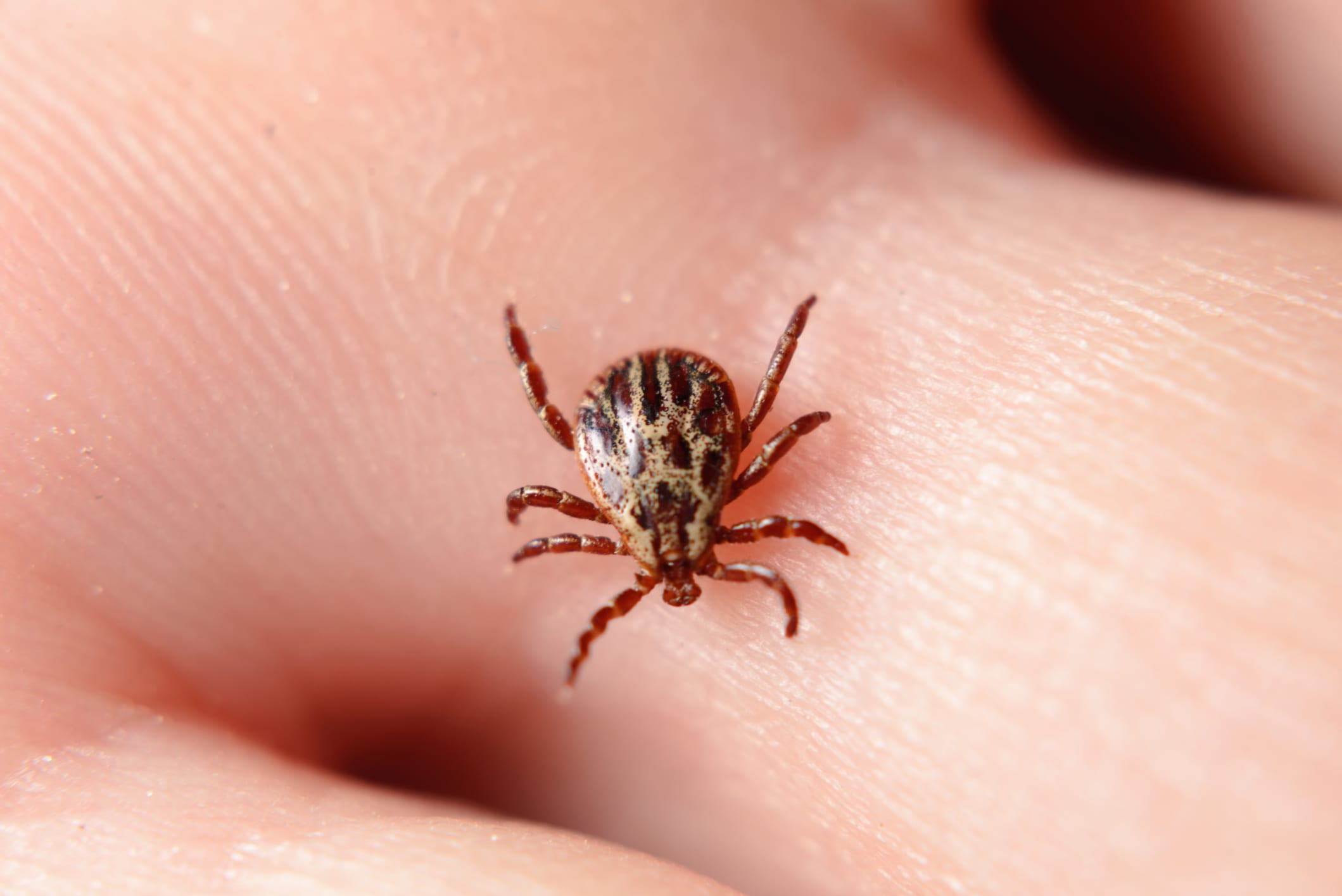Tick Removal
Discovering a tick on your skin can be concerning, as ticks can transmit diseases. Proper tick removal is crucial. Here’s what you need to know.
Finding a Tick
Ticks are more than just outdoor nuisances; they can carry diseases that affect humans. While taking precautions like using insect repellent and avoiding tick-prone areas can help, ticks can still go unnoticed. If you find a tick attached to your skin, follow these steps for safe removal:
Use Fine-Tipped Tweezers:
- Grasp the tick as close to the skin’s surface as possible.
- Ensure you use clean, fine-tipped tweezers for this delicate task.
Remove Steadily:
- Gently pull the tick upward with steady, even pressure.
- Avoid twisting or jerking, as this could cause the tick’s mouth-parts to break off and remain in the skin.
- If mouth-parts break off, use clean tweezers to remove them. If you can’t remove them, leave them alone and let the skin heal.
Clean the Area:
- After successfully removing the tick, clean the bite area and your hands thoroughly.
- You can use rubbing alcohol, iodine soap, or soap and water for cleaning.
Dispose Properly:
- If the tick is still alive, submerge it in alcohol, seal it in a bag or container, wrap it tightly with tape, or flush it down the toilet.
- Never crush a tick with your fingers, as this could release harmful fluids.
Avoid Old Wives Tales:
- Some folklore remedies suggest using nail polish or petroleum jelly on ticks or applying heat to make them detach. It’s best to stick to the steps mentioned above for safe and efficient tick removal.
Monitoring for Symptoms
If you’ve removed the tick promptly, you likely won’t experience any health issues. However, it’s essential to be vigilant. If you notice the following symptoms within a few weeks of a tick bite, seek medical attention at Midwest Express Clinic urgent care:
- Fever or chills
- Aches and pains, such as headaches, fatigue, muscle aches, or joint pain
- Rash
These symptoms may indicate a more serious issue like Lyme disease or another tick-borne illness that requires medical evaluation.

Frequently Asked Questions
How should I remove a tick safely?
To remove a tick safely, follow these steps:
- Use fine-tipped tweezers to grasp the tick as close to the skin’s surface as possible.
- Pull the tick upward with steady, even pressure, avoiding twisting or jerking.
- If the tick’s mouth-parts break off, use clean tweezers to remove them. If you can’t, leave them alone and let the skin heal.
- After removing the tick, clean the bite area and your hands thoroughly with rubbing alcohol, iodine soap, or soap and water.
- Dispose of the tick properly, but never crush it with your fingers.
Are old wives tales like nail polish or petroleum jelly effective for tick removal?
While old wives tales exist, it’s best to follow the recommended steps for safe tick removal using fine-tipped tweezers. These remedies may not be as effective or safe.
What should I do if I experience symptoms after a tick bite?
If you notice symptoms such as fever, chills, aches and pains (headache, fatigue, muscle aches, joint pain), or a rash within a few weeks of a tick bite, seek medical attention at Midwest Express Clinic urgent care. These symptoms may indicate a tick-borne illness.
What diseases can ticks transmit to humans?
Ticks can transmit various diseases to humans, including Lyme disease. It’s crucial to be vigilant and seek medical attention if you suspect a tick bite and experience symptoms.
Can ticks transmit diseases if they are not removed promptly?
Yes, ticks can transmit diseases if they remain attached for an extended period. Prompt and proper tick removal reduces the risk of disease transmission.
Are there any precautions to take to avoid tick bites?
To prevent tick bites, consider:
- Using insect repellent
- Avoiding tick-prone areas
- Wearing protective clothing
Are there any special considerations for pregnant women or individuals living with HIV when dealing with tick bites?
Tick skin tests are safe for individuals of all ages, including pregnant women and those living with HIV. It’s essential to follow the recommended tick removal steps.
What should I do if I've had a severe reaction to a tick skin test in the past?
It’s crucial to inform our medical providers about any previous severe reactions to tick skin tests for proper guidance and evaluation.
What's the importance of disposing of ticks properly?
Proper disposal of ticks helps prevent potential harm by avoiding direct contact and transmission of harmful fluids. It’s essential to handle ticks with care and follow recommended disposal methods.
How can I reach Midwest Express Clinic for assistance with tick-related concerns?
You can visit any of our convenient locations during our operating hours. No appointment is necessary. Your health and well-being are our top priorities.
Tick removal is available at these locations:
Illinois
Aurora
Blue Island
Bolingbrook
Bourbonnais
Burbank
Calumet Park
Carol Stream
Chicago Ridge
Cicero
Elmhurst on Butterfield
Elmhurst on York Street
Evergreen Park
Lombard
Matteson
Melrose Park
Norridge
Northbrook
Richton Park
River Forest
Skokie
Tinley Park on Harlem
Tinley Park on LaGrange
Westmont
Wheaton
Willowbrook

